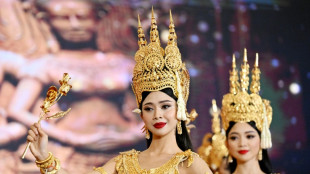
-
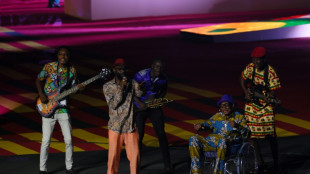 Music world mourns Ghana's Ebo Taylor, founding father of highlife
Music world mourns Ghana's Ebo Taylor, founding father of highlife
-
HK mogul's ex-workers 'broke down in tears' as they watched sentencing
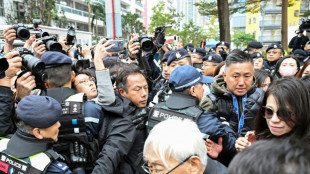
-
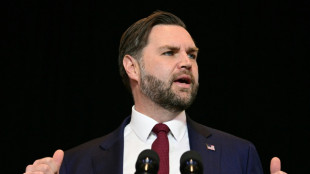 JD Vance set for Armenia, Azerbaijan trip
JD Vance set for Armenia, Azerbaijan trip
-
Sydney police deploy pepper spray as Israeli president's visit sparks protests
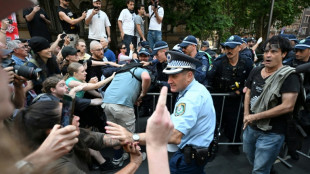
-
 EU warns Meta it must open up WhatsApp to rival AI chatbots
EU warns Meta it must open up WhatsApp to rival AI chatbots
-
Scotland spoil Italy's T20 World Cup debut with big win

-
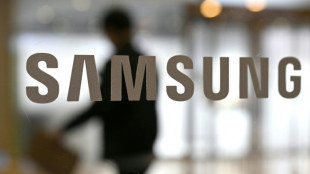 Stocks track Wall St rally as Tokyo hits record on Takaichi win
Stocks track Wall St rally as Tokyo hits record on Takaichi win
-
Israeli president says 'we will overcome evil' at Bondi Beach

-
 Munsey leads Scotland to 207-4 against Italy at T20 World Cup
Munsey leads Scotland to 207-4 against Italy at T20 World Cup
-
Venezuela's Machado says ally 'kidnapped' after his release

-
 Japan restarts world's biggest nuclear plant again
Japan restarts world's biggest nuclear plant again
-
Bangladesh poll rivals rally on final day of campaign

-
 Third impeachment case filed against Philippine VP Duterte
Third impeachment case filed against Philippine VP Duterte
-
Wallaby winger Nawaqanitawase heads to Japan

-
 Thailand's Anutin rides wave of nationalism to election victory
Thailand's Anutin rides wave of nationalism to election victory
-
Venezuela's Machado says ally kidnapped by armed men after his release

-
 Maye longs for do-over as record Super Bowl bid ends in misery
Maye longs for do-over as record Super Bowl bid ends in misery
-
Seahawks' Walker rushes to Super Bowl MVP honors

-
 Darnold basks in 'special journey' to Super Bowl glory
Darnold basks in 'special journey' to Super Bowl glory
-
Japan's Takaichi may struggle to soothe voters and markets

-
 Bad Bunny celebrates Puerto Rico at Super Bowl, angering Trump
Bad Bunny celebrates Puerto Rico at Super Bowl, angering Trump
-
Seahawks soar to Super Bowl win over Patriots

-
 'Want to go home': Indonesian crew abandoned off Africa demand wages
'Want to go home': Indonesian crew abandoned off Africa demand wages
-
Asian stocks track Wall St rally as Tokyo hits record on Takaichi win

-
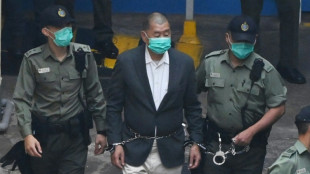 Hong Kong sentences pro-democracy mogul Jimmy Lai to 20 years in jail
Hong Kong sentences pro-democracy mogul Jimmy Lai to 20 years in jail
-
Bad Bunny celebrates Puerto Rico in joyous Super Bowl halftime show

-
 Three prominent opposition figures released in Venezuela
Three prominent opposition figures released in Venezuela
-
Japan PM Takaichi basks in historic election triumph
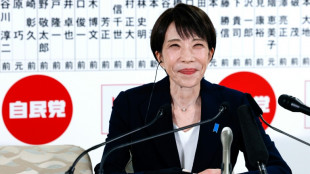
-
 Israeli president says 'we shall overcome this evil' at Bondi Beach
Israeli president says 'we shall overcome this evil' at Bondi Beach
-
'Flood' of disinformation ahead of Bangladesh election

-
 Arguments to begin in key US social media addiction trial
Arguments to begin in key US social media addiction trial
-
Gotterup tops Matsuyama in playoff to win Phoenix Open

-
 New Zealand's Christchurch mosque killer appeals conviction
New Zealand's Christchurch mosque killer appeals conviction
-
Leonard's 41 leads Clippers over T-Wolves, Knicks cruise

-
 Patriots-Seahawks Super Bowl approaches as politics swirl
Patriots-Seahawks Super Bowl approaches as politics swirl
-
Trump says China's Xi to visit US 'toward the end of the year'

-
 Real Madrid edge Valencia to stay on Barca's tail, Atletico slump
Real Madrid edge Valencia to stay on Barca's tail, Atletico slump
-
Malinin keeps USA golden in Olympic figure skating team event

-
 Lebanon building collapse toll rises to 9: civil defence
Lebanon building collapse toll rises to 9: civil defence
-
Real Madrid keep pressure on Barca with tight win at Valencia

-
 Dimarco helps Inter to eight-point lead in Serie A, Juve stumble
Dimarco helps Inter to eight-point lead in Serie A, Juve stumble
-
PSG trounce Marseille to move back top of Ligue 1

-
 Two prominent opposition figures released in Venezuela
Two prominent opposition figures released in Venezuela
-
Hong Kong to sentence media mogul Jimmy Lai in national security trial

-
 Lillard will try to match record with third NBA 3-Point title
Lillard will try to match record with third NBA 3-Point title
-
Vonn breaks leg as crashes out in brutal end to Olympic dream

-
 Malinin enters the fray as Japan lead USA in Olympics team skating
Malinin enters the fray as Japan lead USA in Olympics team skating
-
Thailand's Anutin readies for coalition talks after election win

-
 Fans arrive for Patriots-Seahawks Super Bowl as politics swirl
Fans arrive for Patriots-Seahawks Super Bowl as politics swirl
-
'Send Help' repeats as N.America box office champ


Russia's Asia pivot spurs boom in Chinese classes
Every Sunday, Chinese tutor Kirill Burobin begins work in the early morning and is kept busy until midnight.
As Russia seeks to tighten ties with China amid Moscow's military campaign in Ukraine, the number of Burobin's students has tripled over the past year.
"Sunday is the busiest," 20-year-old Burobin, who makes a good living with his online lessons, told AFP.
"I have 16 hours of classes virtually without a break."
The boom in demand for Chinese lessons in Russia illustrates the country's pivot towards Asia as tensions build between Moscow and the West.
Chinese President Xi Jinping's three-day visit to Russia beginning Monday aims to deepen what the two countries have called a "no-limits" relationship, which is increasingly important for Russia as its international isolation deepens.
Pummelled by multiple rounds of Western sanctions, Russia's economic and technological development is becoming more dependent on China.
Natalia Danina, a manager at HeadHunter, the country's top online recruitment company, said that last year there were nearly 11,000 vacancies requiring knowledge of the Chinese language, a 44 percent increase compared to 2021.
Over the same period, the number of jobs for Chinese speakers in Russia has doubled in sales, transport and logistics, said Danina, pointing to an "accelerated transition" to Chinese-made equipment and spare parts.
Demand for Chinese speakers in energy jobs has tripled, she added.
- 'Just the start' -
Burobin, who also studies Eastern civilisations at a top Moscow university, said that he was happy to help his students learn more about "a whole new world".
"Russians are taking up Chinese because Beijing has become our main partner for decades to come," he said.
"And this is just the beginning."
In August, Avito, Russia's leading online classified ads platform, reported a 138 percent increase in requests for Chinese lessons in Moscow in one year.
The same figure stood at 350 percent for the far eastern city of Vladivostok.
The popularity of Chinese classes might be starting to catch up with demand for English lessons in the country.
Alina Khamlova, 26, who teaches both languages, said she had only three English language students this year, compared to 12 who are learning Chinese.
One of her students is Maria, a 22-year-old designer who dreams of travelling to China to make her clothes there because it is "cheaper than in Russia".
Another student is a 25-year-old gym coach, Ivan, who wants to work in China because Europeans "are paid very well" there.
Khamlova also said that many young people in Russia hope to study in Chinese universities now that many European establishments had become "inaccessible to them".
While English still retains a dominant position, the number of high school students who chose Chinese as a foreign language during their final school exams has doubled in one year to 17,000, according to the state education watchdog Rosobrnadzor.
- 'No one will defeat us' -
Russia's growing isolation from the West has prompted many language schools to revise their curricula and invite teachers of the Chinese language.
Founded in 2017, the ChineseFirst language centre has seen twice as many registrations this year, said its co-founders, Wang Yinyu, 38, and his Russian wife Natalia, a 33-year-old Chinese speaker.
Wang's family business is booming, and he is planning to open two new branches and a kindergarten in Moscow.
In Russia, "many companies have rushed to Chinese factories to order goods that have become unavailable in Russia due to sanctions," he told AFP in Russian.
And Chinese entrepreneurs, who are interested in exporting to Russia, are looking for bilingual employees.
Wang is glad that China and Russia are becoming closer.
"China has powerful industry and Russia is rich in resources, which means that our two countries can build their own internal economy," he said.
"If we stand back-to-back, no one will defeat us."
E.Aziz--SF-PST




